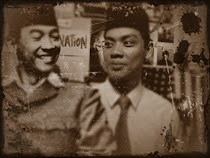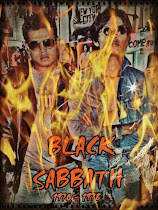Conditional Sentences
Source: English for The SLTA-Structure Reference Book II & III, Departemen Pendidikan dan Kebudayaan.
A conditional sentence is a complex sentence expressing a result which is expected from a condition. The condition is stated in a clause which generally begins with the word (/, and the result is expressed in the main clause. The result expected can be real or unreal.
Conditional Sentences with If.
Frame 1: Affirmative Main Clause
| | MAIN CLAUSE CONDITIONAL CLAUSE | |||||||
| SUBJECT | PREDICATE | IF | SUBJECT | PREDICATE | ||||
| WILL/ WOULD/ WOULD HAVE ETC, | VERB | OBJECT, ETC. | VERB | OBJECT, ETC. | ||||
| 1 | I | will | go | | if | he | gives | me the money. |
| 2 | He | can | pass | the exam | if | he | studies | hard. |
| 3 | She | may | come | | if | she | isn’t | ill. |
| 4 | I | would | go | | if | he | gave | me the money. |
| 5 | He | should | pass | the exam | if | he | studied | hard. |
| 6 | She | might | come | | if | she | weren’t | ill. |
| 7 | I | would have | gone | | if | he | had given | me the money. |
| 8 | He | could have | passed | the exam | if | he | had studied | hard. |
| 9 | She | might have | come | | if | she | hadn’t been | ill. |
1. There are three important types of conditional sentences:
a). Future conditional sentences
b). Present conditional sentences
c). Past conditional sentences
a) A future conditional sentence expresses that something mentioned in the if – clause will probably happen or is likely to happen in the present or in the future.
b) A present conditional sentence expresses that something mentioned in the if – clause is unreal or contrary to the fact of the present.
c) A past conditional sentence also states a contrary – to – the -fact condition. It expresses that something mentioned in the if- clause did not occur in the past.
a) In the future conditional sentence the main clause uses will, can, must, may, to be going to. have to, expect to, plus the first form of a verb. The verb in the conditional clause is in the present tense. See sentences 1, 2 and 3 in the frame.
b) In the present conditional sentence the main clause uses would, could, might, was going to, expected to, plus the first form of a verb. The verb in the conditional clause is in the past tense. See sentences 4, 5 and 6 in the frame.
c) In the past conditional sentence the main clause uses would have, could have, might have, plus the third form of a verb. The verb in the conditional clause is in the past perfect tense. See sentences 7, 8 and 9 in the frame. The contracted forms would’ve, could’ve, etc. are often used instead of would have, could have, etc.
2. When the verb in the present conditional sentence is be, were is commonly used for all persons. See sentence 6 in the frame.
Other examples:
(1) I might come if I weren ‘t ill.
(2) You could go if she were here.
(3) They would study if they were students.
3. The verb form used in the contrary – to – fact condition is also called subjunctive.
The conditional clause can follow or precede the main clause.
Examples:
(1) He will come if he gets a car.
(2) I would go if he gave me the book.
(3) We could have invited her if she had been here. or:
(1) If he gets a car, he will come.
(2) If he gave me the book, / would go.
(3) If she had been here, we could have invited her.
4. When the conditional clause precedes the main clause, it is often separated from the main clause by a comma (,).
5. The main clause can be in the affirmative, interrogative (question); or negative form. All the sentences in the above frame have affirmative main clauses. The conditional clause can be affirmative (sentences 1, 2, 4, 5, 7, 8 or negative (sentences 3, 6, 9).
Frame 2: Interrogative Main Clause
| | MAIN CLAUSE | CONDITIONAL CLAUSE | |||
| WILL/WOULD ETC. | SUBJECT | verb | OBJECT | ||
| 1 | Will | you | go | | if he gives you the money? |
| 2 | Can | he | pass | the exam | if he studies hard? |
| 3 | May | she | come | | if she isn’t ill? |
| 4 | Would | you | go | | if he gave you the money? |
| 5 | Could | he | pass | the exam | if he studied hard? |
| 6 | Might | she | come | | if she weren’t ill? |





0 komentar:
Posting Komentar